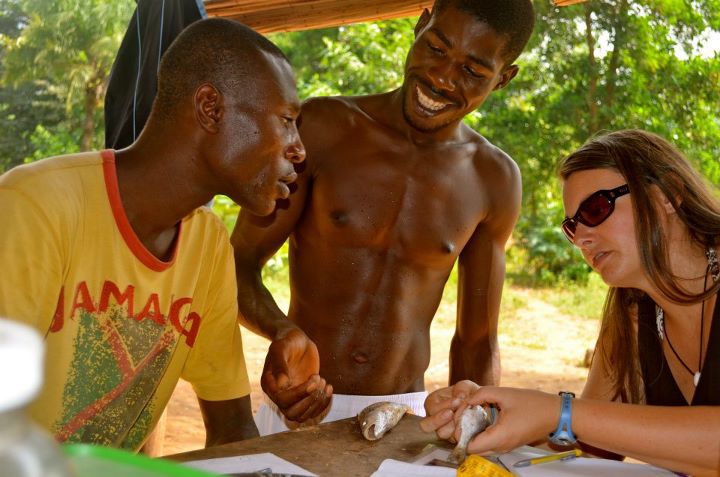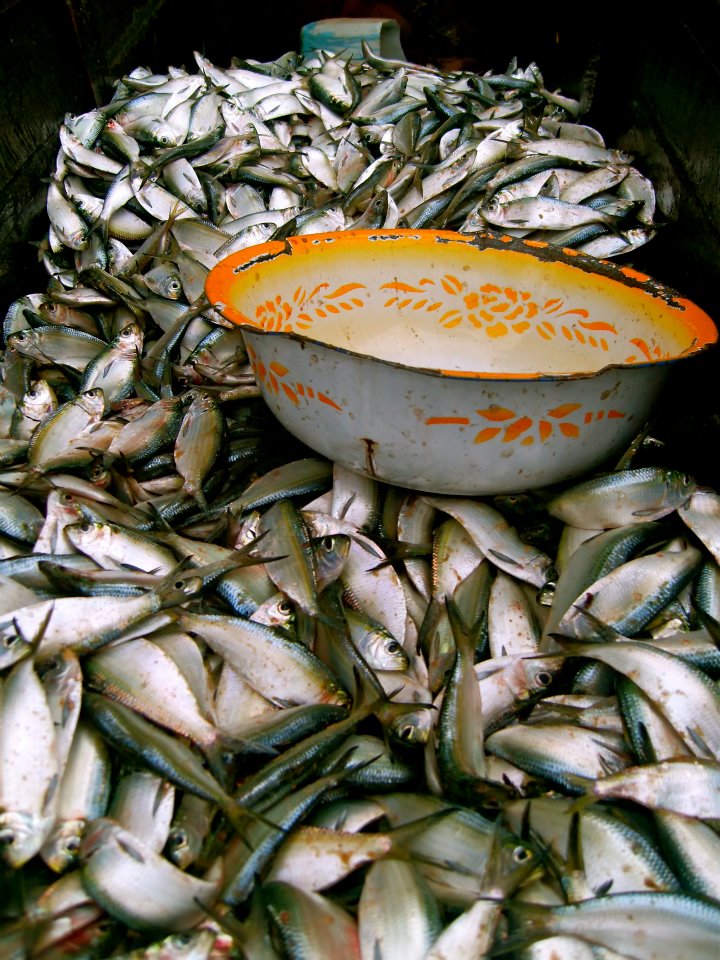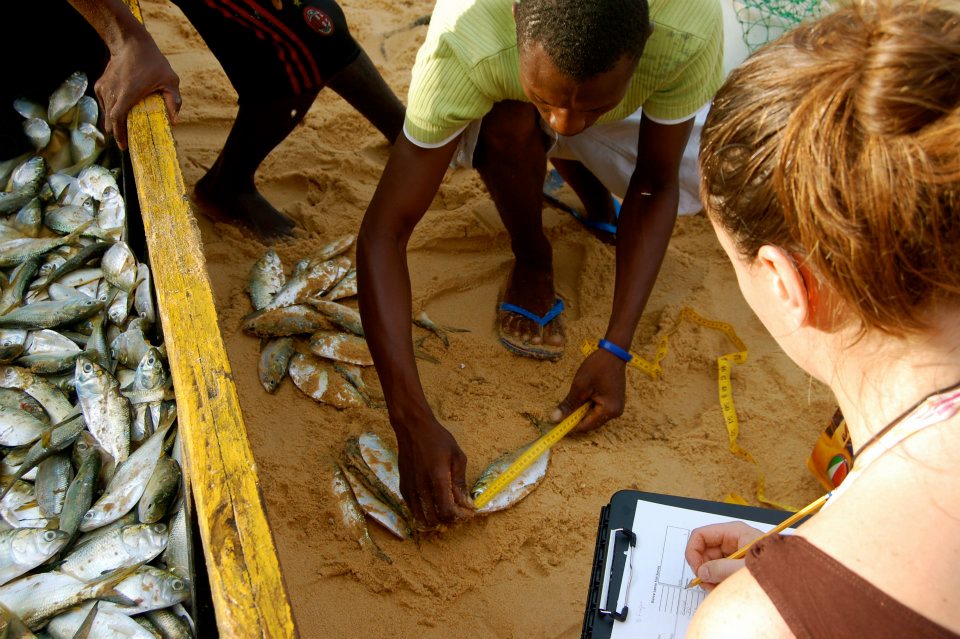
MLML alumna Mariah Boyle has been busy. Since finishing her thesis work in Ichthyology at MLML, Mariah has found work with Fishwise, a sustainable seafood consultancy located in Santa Cruz, as Assistant Operations Director. In addition, she has found a way to merge her passions for science, travel and social justice into action. Last night, attendees of the bi-monthly Friends of Moss Landing seminar series were treated to the inspiring story of Mariah’s recent endeavors to enhance fisheries management in Sierra Leone.
With a backdrop featuring stunning photos of the land and people of the Freetown Peninsula in Sierra Leone, Mariah filled the audience in on some socio-political history of the region. Years of corruption and violent war have left this nation; rich though it is in an abundant diversity of natural resources; mired in poverty and weak infrastructure. Fish are what Mariah knows, and as it turns out fish are of great importance to the people of Sierra Leone. Smoked in the coastal villages and transported “upcountry”, fish provide a primary source of income and protein for people throughout the country.

Fishermen in the coastal towns craft fishing nets which are slung from the side of small boats and the catch brought in every morning to be cured and sold. Though the boats are small, they are many and fisheries data in the region hardly exists. Still, fish were plentiful until recently. The threat of piracy off the Western Coast of Africa is real and it is terrible. It is thought that 40% of the fish caught off the Sierra Leone coast are caught through IUU fishing. That is; Illegal, Unregulated and Unreported. These pirate boats use gigantic trawling nets that take everything they pass over, resulting in a tremendous amount of by catch. Though it is illegal for these massive trawlers to come within 5 nautical miles of the coast, there is little to no enforcement. Local fisherman are under direct threat by the boats and people on board. Their nets are often cut. Driven from their preferred fishing spots, the local fisherman have taken to fishing the nearby estuary.
Under duress from over fishing of both the juvenile and adult stocks, the fisheries have dwindled. And there is little management practiced at this time.
That is where Mariah drew her inspiration to bring her knowledge as a scientist into play. Ms. Boyle found funding through research grants, allowing her to return to Sierra Leone in 2011 with a goal to collect fisheries data; such as types of fish being caught, numbers and size; in order to inform community management.

She has worked to transform this information into a useable Log Book and Fish Guide with photographs of typical fish along with both local and scientific names for the fish. Mariah hopes these books can be used by the fishermen to track their own data so that the fisheries may be locally managed. During her last visit, 50-70 fish were identified and over 1000 fish were measured. She is now working up analysis on this data.
Informative documentaries on the threat of piracy to fisheries sustainability may be found at the Environmental Justice Foundation website. Follow Mariah’s progress on her facebook page and on her personal blog.

